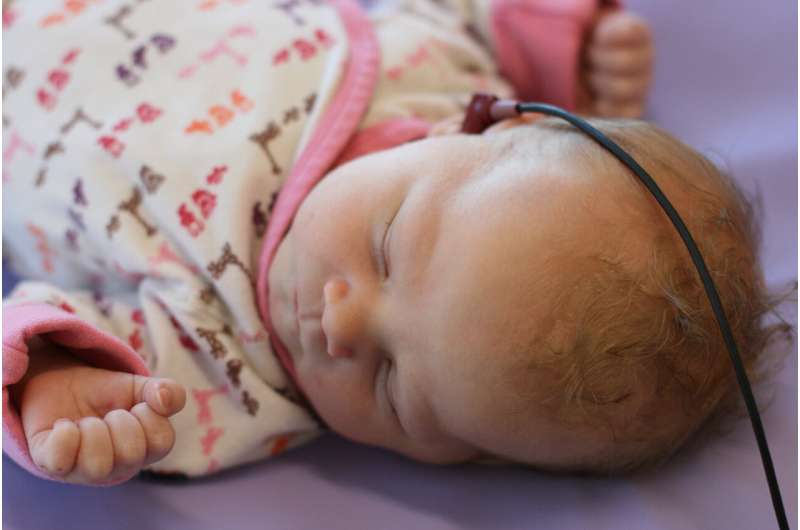Home » Health News »
Screening programs for childhood hearing loss need to be improved, thesis shows

Screening programs for childhood hearing loss need to become better at collecting data and measuring outcomes in order to increase quality, such as improving the percentage of follow-ups, a new thesis from Karolinska Institutet reports.
One in 500 infants have a permanent hearing loss, which can affect the development of their spoken language. Spoken language sets the stage for reading, social communication and education.
“A delay in language development can have lifetime consequences, and it is therefore vital that infants and children with hearing loss receive intervention as early as possible,” says Allison Mackey, who recently completed her doctoral thesis under the supervision of Inger Uhlén at the Department of Clinical Science, Intervention and Technology, Karolinska Institutet.
Lack of data collection
The thesis evaluated, among other things, how well the childhood hearing screening programs were performing as well as the strategies used to improve their outcome.
“For example, we carried out an international survey about the status of screening programs in both high- and middle-income countries in Europe, as part of a large multicenter project,” Allison Mackey says. “It showed that most high-income countries perform newborn hearing screening on all infants, however, only a few middle-income countries had similar programs. We also found that in most countries, data were not available regarding the outcomes of the screening program.”
Important to improve follow-ups
The thesis also shows that loss to follow-up is one area of particular concern.
“In many programs around the world, a high percentage of infants, who do not pass screening, are not returning for a follow-up assessment,” Allison Mackey says. “This could be due to a number of factors, but we could see for example that the experience and knowledge of personnel involved in the screening program has an impact on the statistics.”.
The passing criteria used for screening are important determinants for program sensitivity. Stricter criteria will lead to more babies with hearing loss being detected in the screening program.
Source: Read Full Article

